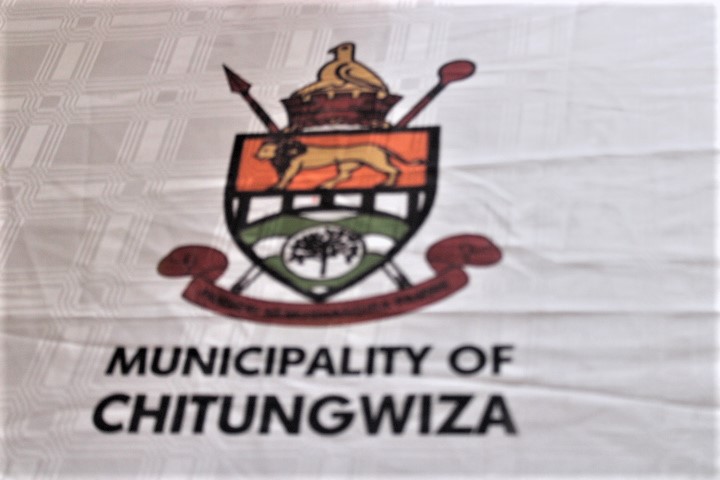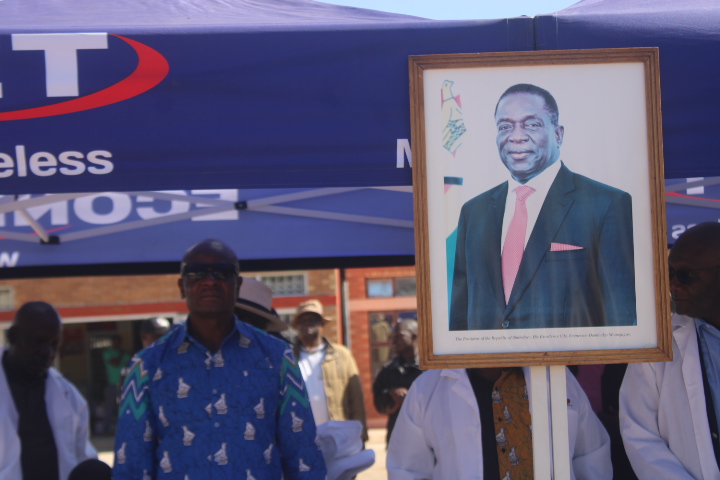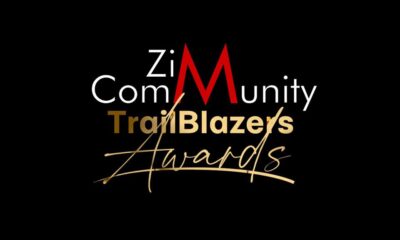Comment
Shutting journalists out is shutting the public out
Sadly, when journalists are shut out, the public is also shut out.

Today is World Press Freedom Day.
As we celebrate this important day, our solutions-based community media house has seized this opportunity to educate communities on the challenges we face and solutions we have successfully employed.
Solutions journalism is on the rise globally.
As news avoidance becomes a primary problem for the publishing industry, constructive and service journalism are more positive alternatives.
We will also educate you on a few of the many strategies that we have successfully implemented to overcome the challenges our journalists are facing with sources.
This is because the erosion of access that arises when our sources dismiss the press undermines the value of independent reporting.
The absence of such reporting has a negative impact on citizens to participate robustly in their civic life.
Many a time when we seek access to sources who are in positions of authority, they are masters in employing tactics that are aimed at delaying, distracting and denying us public information.
Endemic political polarisation is another factor that is behind the repeated vitriol we are subjected to from the corrupt, who demonize the media.
Recently, we were subjected to nasty experiences by some current and former councillors, who frequently denounced or harassed us for doing our job.
Thanks to our source development strategies, we knew why there were not comfortable with us.
Exposing corruption is the chief cause of a breakdown of relationships between journalists and the people they cover.
Sadly, when journalists are shut out, the public is also shut out.
We therefore urge all stakeholders to cherish information as a public good.
Another worrying tendency by service delivery providers is that of closing the door on the media from attending important events.
Local public officials are also illegally denying us access to public places and public records such as council minutes.
They have become experts in frustrating journalists to report on matters of central interest to our local news audiences.
These are not an isolated cases.
Some powerful people have employed members of the civic society and rogue politicians to distract us from probing their actions.
Others in power now prefer to reach out to citizens directly through other, such as social media channels.
In many such cases there is a lack of independent reporting as this often undermines a core component of the public’s power to frame its own view.
The media needs the access to hold the powerful to account.
We owe the public information about how its money is spent or about the actions of those who are elected to serve.
Key strategies
The good news is that even amid challenging economic pressures, Zim Community News has prevailed.
Our focus is on beat reporting and source relationships.
Expanding our network of sources beyond the “official” and into the community offers more ways to get at the story. It also increases the expertise of the reporter on their beat, which in turn establishes credibility and trust with other sources.
It takes time and effort to build trust with community sources, but it’s worth it.
We shall engage school heads, civic society, government officials, students, parents, custodians, neighbours and friends.
These people in the community are well sourced. They have friends and family members in many places
It doesn’t mean we completely burn our sources that are higher up.
We are not too keen on email interviews and reporting on staged events.
While sources may attempt to seize control of their narrative, we still have plenty of options our disposal to keep our audiences informed and sources accountable.
A recommitment to good beat reporting that involves getting out of the office and building personal relationships with sources, is key.
Henceforth we are going to offer our audiences more detail about when sources would not cooperate.
We know where these sources are talking and we are always building relationships there.
To make our work easier we partner with other journalists in order to cover more ground.
In future we shall invoke legal rights to public documents, and are willing to go to court to fight for access.
As we strive to inform and educate people we are always on the look-out of new sources.
Apart from adding value to accurate reporting, source development helps to promote issues of trust.
We also ensure that our source pool is wide.
Funding and the changing information landscape all make this a real challenge,
While we welcome partnerships and sponsored stories, we will continue to uphold our role as watchdogs of the society, and guardians of public interests, while embracing the responsibilities that come with the profession.
As local news staffs have shrunk, ties to the community have weakened.
We believe that as we make these change successfully, we will increase the amount of insight and information gained from community sources.
The result is a more accurate picture of public concerns and solutions.
Rooting our coverage in the concerns and experiences of the community makes the coverage more accurate and complete, and therefore more trustworthy.”
With that advantage the community is making sure the community trusts you enough to give you that important information.
Comment
You are offside Chitungwiza

GLOBALLY, there is now an increased demand for transparency and accountability in the use of public resources allocated and disbursed to lower tiers of government.
Inevitably, the easy accessibility and user friendliness of such information from local authorities determines the quality and depth of their stakeholder engagements.
In addition, timeous sharing of relevant information facilitates informed decision making and oversight by stakeholders.
Guided by the above, we recently sought information from Chitungwiza Municipality on the current costs of the master plan implementation process and the valuation roll exercise.
We also wanted to know how far they had gone in the implementation of both exercises.
The answer from the responsible council official is the subject of this editorial.
Our editorial is anchored on the premise that our government and local authorities, are the principal custodians of the well-being of the residents through their provision of public and infrastructural services.
The Chitungwiza official told us without mincing his words that our enquiry on Chitungwiza was misplaced because no one knows what other local authorities are paying for the valuation roll.
Just like that, plain and simple.
Talking about precedence, was this not the same council that publicly stated that Chitungwiza needed around US$600 000 for its master plan.
Was it not their official who told residents during the recent master plan stakeholder engagement exercise that the figure could rise above the $600 000?
Is it not the same council that declared itself broke and sought a partner to fund the master plan to the tune of the above figure?
Curiously, that same council had dumped a consultant who was the sole bidder for the master plan.
In an about turn, the same council reverted to the sole bidder following disagreements with the proposed funder.
All of a sudden the figure for the master plan costs nosedived to $180 000 only to rise to the $190 000 that was settled with the new lead planner.
In such a situation residents and the media can’t be said to be crazy in seeking answers from Chitungwiza.
Community based organisations can also demand the local authorities to account for the financial resources used.
These CBOs have responsibilities of setting Chitungwiza’s development agenda and can also demand to be given feedback about the progress of projects being undertaken by the local authority in question.
In simple terms the successes, failure and or delays in taking off of various projects should be reported to stakeholders.
In that light, the stakeholders have a right to know who is funding the master plan for the broke municipality and why all of a sudden the figures have changed or continued to change.
As the media,we need to question the extent to which fiscal transparency and accountability principles are being adopted by Chitungwiza council.
We will trigger conversations on the role of fiscal transparency and accountability in achieving the national objectives.
In that respect, to what extent, if any is Chitungwiza conforming to the existing legal and institutional frameworks that are expected to foster transparency and accountability, we rightfully ask
This assists all stakeholders to draw lessons from each other’s experiences on how to improve fiscal transparency and accountability.
We are reliably informed that the government has intervened to resolve the crisis at Chitungwiza by funding the master plan.
We welcome such a development and with it comes increased demand for transparency and accountability in the use of public resources allocated and disbursed to lower tiers of government.
In order to facilitate deeper citizen engagements Chitungwiza needs to make a distinct break with the past where other stakeholders had little or no access to information on public financial management.
Research has shown that transparency and accountability are interrelated and mutually reinforcing concepts without which it would be difficult to call public sector entities to account.
It has been noted that Zimbabwe has the necessary policy framework including our Constitution, the Zimbabwe Finance Management Act and Urban and Rural Councils Acts which are expected to foster transparency and accountability.
However, the main challenges are on the implementation and enforcement of the provisions of these legislative frameworks.
This has been the reason why adverse issues and irregularities noted by the Auditor General’s reports including recommendations to address these anomalies have not been addressed by the respective public entities.
There is need to accelerate the roll-out of the financial management information system to local authorities to enhance transparency and accountability.
Dogged enforcement of the constitutional and legal provisions in respect of financial reports, internal controls and audits is therefore critical.
Best practices on transparency and accountability policies and practices should also dovetail with the national context, policy priorities and strategic actions to be taken.
In this regard, we call upon Chitungwiza municipality officials to increase the levels of transparency and accountability in order to enhance the successful implementation of both the master plan and valuation roll.
Comment
Zim Community News gives the thumbs up to Save Our Kids campaign
Comment
No transparency, more Chitown corruption

THE hallmark of progressive public institutions lies in them religiously availing information as a public good.
However in that respect Chitungwiza municipality still believes in monopolising public information.
This is clearly evident from the recent negative responses that came out from stakeholders during the first stage of the master plan stakeholder engagement process.
Our commendations go to the residents, who are alive to the fact that information has become a necessary public good to combat rampant mismanagement of public funds.
Instead of enhancing and improving channels of communication and information to the stakeholders, Chitungwiza management headed by acting town clerk Japson Nemuseso not only thinks but acts otherwise.
The powers that be at Chitungwiza have made it their policy to renege on the public mandate to avail information to the media and its clientele.
We note that failure to avail information to its public resulted in Chitungwiza Municipality being ranked as the most secretive institution in the country by a survey conducted by the Media Institute of Southern Africa (MISA) Zimbabwe’s 2020 Transparency Assessment Index.
Among other factors, Chitungwiza’s scored very low on the degree to which information is made available to citizens upon request, and how responsive the municipality is to requests for information by either the media or the residents.
Of concern to us four years down the line is that nothing has changed for the better, in actual fact it’s now worse than before.
Nemuseso and his public relations department are now masters of deception. Either they completely ignore interview questions from the media or they evade giving detailed responses pertinent to the issues raised by journalists by playing the cat and mouse game.
In a keynote address during recent Urban Councils Association of Zimbabwe (UCAZ) consultative workshop in Bulawayo, Local Government and Public Works Minister Daniel Garwe urged councils to prioritise the needs of their communities by providing essential services to the public.
We welcome the Local Government minister’s progressive statement given that our media house Perfection Media Pvt Ltd’s editorial policy is anchored on solution-based journalism.
However, poor corporate governance and weak service delivery concerns continue to ruin the performance of Chitungwiza Municipality as evidenced by the latest Auditor General’s report.
The adverse report shows that Chitungwiza failed to comply with international financial reporting and accounting standards.
This is against President Emmerson Mnangagwa’s “Call to Action, No Compromise to Service Delivery” blueprint for local authorities, launched last year.
The blueprint directed every local authority to come up with a master plan and evaluate all properties that are under their jurisdiction by June 30 this year.
The directive from Mnangagwa aims to enhance accountability and improve the quality of life for residents Of major concern is the illegal leasing, and selling of land by council in servitudes.
The valuation rolls for properties for rating purposes is listed as a key priority area of intervention, however Chitungwiza is yet to embark on a valuation rolls exercise
To make matters worse, Chitungwiza failed to meet that deadline and requested for an extension.
Since then, the broke and under-capacitated municipality has hogged the limelight for going back and forth in engaging master plan consultants.
In response councillors are blaming the acting town clerk for misleading them. By their nature, the mandate of local authorities is to work with communities to develop strategic visions for their cities and towns.
This in turn assists central government in the implementation of policies that are aimed at promoting national development.
Such a role requires people-friendly local authorities that are responsive to the needs and aspirations of customers in terms of information dissemination.
However, this is not the case with Chitungwiza, and may force stakeholders to approach the courts for reprieve.
Until the local authority commits to improved governance systems and uphold and enforce anti-corruption efforts, residents continue to suffer due to lack of basic services such as water.
Information has become a necessary public good to combat corruption and mismanagement of public funds.
With corruption cases are proving to be difficult to investigate and prosecute, Chitungwiza needs to open up and be more transparent.
Dungwiza News and other media outlets need to raise awareness on the importance of the mandate of the public institution to provide information on its activities.
Gone are the days when information was a privilege to a few.
A council is ineffective or inefficient where councillors, management and workers fail to produce quality work or fails to fulfill work programmes.
Local governance is that level of governance that is closest to the people which happens at a local level within the geographical vicinity of residents.
The expectation is that residents are able to effectively influence local governance because this is a level where their voices can be heard and development processes influenced.
The crisis in management of Chitungwiza Municipality has manifested into poor service delivery and a malfunctional system.
In the same context, corruption, misplaced priorities, poor quality of councillors and an inadequate policy and legislative framework are issues that need to be reviewed and refocused toward development.
There is no room for non-performing managers and or those implicated in corrupt tendencies.
-

 Tourism1 year ago
Tourism1 year agoAntelope Park joins White Rhino fight
-

 Breaking News11 months ago
Breaking News11 months agoZim Community Trailblazers Awards (ZCTA) Call for Entries (5th Edition)
-

 Health and Wellness1 year ago
Health and Wellness1 year agoLeaked nudes: Traumatic impact, healing pathways
-

 Entertainment4 years ago
Entertainment4 years agoCharambas ZCTA maiden winners
-

 Breaking News12 months ago
Breaking News12 months agoMnangagwa approves Starlink Zim operations
-

 Entertainment1 year ago
Entertainment1 year agoSetina Mandiveyi plots to shine
-

 Tourism1 year ago
Tourism1 year agoWhite Rhino grazing at Zim’s biggest private game reserve
-

 Zim Community Trailblazers Awards1 year ago
Zim Community Trailblazers Awards1 year agoDr Peta: First Zim to obtain Disability Studies PhD






